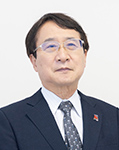Exosome-mediated immune regulation and its clinical application
Vol 4, Issue 1, 2020
VIEWS - 11942 (Abstract)
Abstract
Immune system is a precise mechanism for maintenance of homeostasis by lymphocyte-mediated elimination of extracellular and intercellular pathogens, and abnormal cells in cytokine-, chemokine-, antibody-, and cytotoxic granule-dependent manners. Extracellular vesicles, e.g. exosomes, released from multivesicular endosome in immune cells have been known to be a part of the immune system. Exosomes released by antigen-presenting cells (APCs) such as macrophages and dendritic cells (DCs) regulate natural killer (NK) cells, CD8+ T cells (Cytotoxic T lymphocytes [CTLs]), and CD4+ T cells (Th cells) including Th1, Th2, and regulatory T (Treg) cells. In the anti-tumor immune system, NK cells and CTLs are mainly involved in the elimination of tumor cells by direct interaction. Recently, we clarified that tumor-infiltrating CD8+ T cells prevent tumor invasion and metastasis by exosome-mediated destruction of tumor stroma consist of mesenchymal stem cells (MSCs) and cancer-associated fibroblasts (CAFs). In this review article, we describe the role of exosomes in controlling immune system and its clinical application.
Keywords
Full Text:
PDFReferences
- Seo N, Hayakawa S, Tokura Y. Mechanisms of immune privilege for tumor cells by regulatory cytokines produced by innate and acquired immune cells. Semin Cancer Biol 2002; 12(4): 291–300. doi: 10.1016/S1044-579X(02)00015-9.
- Kumar V, Patel S, Tcyganov E, et al. The Nature of Myeloid-Derived Suppressor Cells in the Tumor Microenvironment. Trends Immunol 2016; 37(3): 208–220. doi: 10.1016/j.it.2016.01.004.
- Gehrmann U, Näslund TI, Hiltbrunner S, et al. Harnessing the exosome-induced immune response for cancer immunotherapy. Semin Cancer Biol 2014; 28: 58–67. doi: 10.1016/j.semcancer.2014.05.003.
- Momose F, Seo N, Akahori Y, et al. Guanine-Rich Sequences Are a Dominant Feature of Exosomal microRNAs across the Mammalian Species and Cell Types. PLoS One 2016; 11(4): e0154134. doi: 10.1371/journal.pone.0154134.
- Schuler PJ, Saze Z, Hong CS, et al. Human CD4+ CD39+ regulatory T cells produce adenosine upon co-expression of surface CD73 or contact with CD73+ exosomes or CD73+ cells. Clin Exp Immunol 2014; 177(2): 531–543. doi: 10.1111/cei.12354.
- Smyth LA, Ratnasothy K, Tsang JY, et al. CD73 expression on extracellular vesicles derived from CD4+ CD25+ Foxp3+ T cells contributes to their regulatory function. Eur J Immunol 2013; 43(9): 2430–2440. doi: 10.1002/eji.201242909.
- Okoye IS, Coomes SM, Pelly VS, et al. MicroRNA-containing T-regulatory-cell-derived exosomes suppress pathogenic T helper 1 cells. Immunity 2014; 41(3): 89–103. doi: 10.1016/j.immuni.2014.05.019.
- Pieters BC, Arntz OJ1, Bennink MB, et al. Commercial cow milk contains physically stable extracellular vesicles expressing immunoregulatory TGF-β. PLoS One 2015; 10(3): e0121123. doi: 10.1371/journal.pone.0121123.
- Melnik BC, John SM, Schmitz G. Milk: An exosomal microRNA transmitter promoting thymic regulatory T cell maturation preventing the development of atopy? J Transl Med 2014; 12: 43. doi: 10.1186/1479-5876-12-43.
- Yu X, Huang C, Song B, et al. CD4+CD25+ regulatory T cells-derived exosomes prolonged kidney allograft survival in a rat model. Cell Immunol 2013; 285: 62–68. doi: 10.1016/j.cellimm.2013.06.010.
- Wahlgren J, Karlson Tde L, Glader P, et al. Activated human T cells secrete exosomes that participate in IL-2 mediated immune response signaling. PLoS One 2012; 7(11): e49723. doi: 10.1371/journal.pone.0049723.
- Cai Z, Yang F, Yu L, et al. Activated T cell exosomes promote tumor invasion via Fas signaling pathway. J Immunol 2012; 188(12): 5954–5961. doi: 10.4049/jimmunol.1103466.
- Seo N, Shirakura Y, Tahara Y, et al. Activated CD8+ T cell extracellular vesicles prevent tumour progression by targeting of lesional mesenchyal cells. Nat Commun 2018; 9(1): 435. doi: 10.1038/s41467-018-02865-1.
- Lugini L, Cecchetti S, Huber V, et al. Immune surveillance properties of human NK cell-derived exosomes. J Immunol 2012; 189(6): 2833–2842. doi: 10.4049/jimmunol.1101988.
- Raposo G, Nijman HW, Stoorvogel W, et al. B lymphocytes secrete antigen-presenting vesicles. J Exp Med 1996; 183(3): 1161–1172. doi: 10.1084/jem.183.3.1161.
- Saunderson SC, Dunn AC, Crocker PR, et al. CD169 mediates the capture of exosomes in spleen and lymph node. Blood 2014; 123(2): 208–216. doi: 10.1182/blood-2013-03-489732.
- Paggetti J, Haderk F, Seiffert M, et al. Exosomes released by chronic lymphocytic leukemia cells induce the transition of stromal cells into cancer-associated fibroblasts. Blood 2015; 126(9): 1106–1117. doi: 10.1182/blood-2014-12-618025.
- Matsumoto A, Takahashi Y, Nishikawa M, et al. Role of Phosphatidylserine-Derived Negative Surface Charges in the Recognition and Uptake of Intravenously Injected B16BL6-Derived Exosomes by Macrophages. J Pharm Sci 2017; 106(1): 168–175. doi: 10.1016/j.xphs.2016.07.022.
- Costa-Silva B, Aiello NM, Ocean AJ, et al. Pancreatic cancer exosomes initiate pre-metastatic niche formation in the liver. Nat Cell Biol 2015; 17(6): 816–826. doi: 10.1038/ncb3169.
- Ismail N, Wang Y, Dakhlallah D, et al. Macrophage microvesicles induce macrophage differentiation and miR-223 transfer. Blood 2013; 121(6): 984–995. doi: 10.1182/blood-2011-08-374793.
- Seo N, et al. Basic and clinical aspects of epidermal Langerhans cell-based tumor immunotherapy. Expert Rev Dermatol 2007; 2: 725–733. doi: 10.1586/17469872.2.6.725.
- Quah BJ, O'Neill HC. The immunogenicity of dendritic cell-derived exosomes. Blood Cells Mol Dis 2005; 35(2): 94–110. doi: 10.1016/j.bcmd.2005.05.002.
- Quah BJ, O'Neill HC. Maturation of function in dendritic cells for tolerance and immunity. J Cell Mol Med 9: 643–654, 2005. doi: 10.1111/j.1582-4934.2005.tb00494.x.
- Li X, Li JJ, Yang JY, et al. Tolerance induction by exosomes from immature dendritic cells and rapamycin in a mouse cardiac allograft model. PLoS One 2012; 7(8): e44045. doi: 10.1371/journal.pone.0044045.
- Pitt JM, André F, Amigorena S, et al. Dendritic cell-derived exosomes for cancer therapy. J Clin Invest 2016; 126(4): 1224–1232. doi: 10.1172/JCI81137.
- Gehrmann U, Näslund TI, Hiltbrunner S, et al. Harnessing the exosome-induced immune response for cancer immunotherapy. Semin Cancer Biol 2014; 28: 58–67. doi: 10.1016/j.semcancer.2014.05.003.
- Näslund TI, Gehrmann U, Qazi KR, et al. Dendritic cell-derived exosomes need to activate both T and B cells to induce antitumor immunity. J Immunol 2013; 190(6): 2712–2719. doi: 10.4049/jimmunol.1203082.
- Besse B, Charrier M, Lapierre V, et al. Dendritic cell-derived exosomes as maintenance immunotherapy after first line chemotherapy in NSCLC. Oncoimmunology 2015; 5(4): e1071008. doi: 10.1080/2162402X.2015.1071008.
- Gehrmann U, Hiltbrunner S, Georgoudaki AM, et al. Synergistic induction of adaptive antitumor immunity by codelivery of antigen with α-galactosylceramide on exosomes. Cancer Res 2013; 73(13): 3865–3876. doi: 10.1158/0008-5472.CAN-12-3918.
- Lynch S, Santos SG, Campbell EC, et al. Novel MHC class I structures on exosomes. J Immunol 2009; 183(3): 1884–1891. doi: 10.4049/jimmunol.0900798.
- Hiltbrunner S, Larssen P, Eldh M, et al. Exosomal cancer immunotherapy is independent of MHC molecules on exosomes. Oncotarget 2016; 7(25): 38707–38717. doi: 10.18632/oncotarget.9585.
- Muller L, Mitsuhashi M, Simms P, et al. Tumor-derived exosomes regulate expression of immune function-related genes in human T cell subsets. Sci Rep 2016; 6: 20254. doi: 10.1038/srep20254.
- Mrizak D, Martin N, Barjon C, et al. Effect of nasopharyngeal carcinoma-derived exosomes on human regulatory T cells. J Natl Cancer Inst 2014; 107(1): 363. doi: 10.1093/jnci/dju363.
- Szajnik M, Czystowska M, Szczepanski MJ, et al. Tumor-derived microvesicles induce, expand and up-regulate biological activities of human regulatory T cells (Treg). PLoS One 2010; 5(7): e11469. doi: 10.1371/journal.pone.0011469.
- Chalmin F, Ladoire S, Mignot G, et al. Membrane-associated Hsp72 from tumor-derived exosomes mediates STAT3-dependent immunosuppressive function of mouse and human myeloid-derived suppressor cells. J Clin Invest 2010; 120(2): 457–471. doi: 10.1172/JCI40483.
- Xiang X, Poliakov A, Liu C, et al. Induction of myeloid-derived suppressor cells by tumor exosomes. Int J Cancer 2009; 124(11): 2621–2633. doi: 10.1002/ijc.24249.
- Fernández-Messina L, Ashiru O, Boutet P, et al. Differential mechanisms of shedding of the glycosylphosphatidylinositol (GPI)-anchored NKG2D ligands. J Biol Chem 2010; 285(12): 8543–8551. doi: /10.1074/jbc.M109.045906.
- Ashiru O, Boutet P, Fernández-Messina L, et al. Natural killer cell cytotoxicity is suppressed by exposure to the human NKG2D ligand MICA*008 that is shed by tumor cells in exosomes. Cancer Res 2010; 70(2): 481–489. doi: 10.1158/0008-5472.CAN-09-1688.
- Bu N, Wu H, Sun B, et al. Exosome-loaded dendritic cells elicit tumor-specific CD8+ cytotoxic T cells in patients with glioma. J Neurooncol 2011; 104(3): 659–667. doi: 10.1007/s11060-011-0537-1.
- Yang N, Li S, Li G, et al. The role of extracellular vesicles in mediating progression, metastasis and potential treatment of hepatocellular carcinoma. Oncotarget 2017; 8(2): 3683–3695. doi: 10.18632/oncotarget.12465.
- Zhang H, Tang K, Zhang Y, et al. Cell-free tumor microparticle vaccines stimulate dendritic cells via cGAS/STING signaling. Cancer Immunol Res 2015; 3(2): 196–205. doi: 10.1158/2326-6066.CIR-14-0177.
- Berchem G, Noman MZ, Bosseler M, et al. Hypoxic tumor-derived microvesicles negatively regulate NK cell function by a mechanism involving TGF-β and miR23a transfer. Oncoimmunology 2015; 5(4): e1062968. doi: 10.1080/2162402X.2015.1062968.
- Chen T, Guo J, Yang M, et al. Chemokine-containing exosomes are released from heat-stressed tumor cells via lipid raft-dependent pathway and act as efficient tumor vaccine. J Immunol 2011; 186(4): 2219–2228. doi: 10.4049/jimmunol.1002991.
- Lv LH, Wan YL, Lin Y, et al. Anticancer drugs cause release of exosomes with heat shock proteins from human hepatocellular carcinoma cells that elicit effective natural killer cell antitumor responses in vitro. J Biol Chem 2012; 287(19): 15874–15885. doi: 10.1074/jbc.M112.340588.
DOI: https://doi.org/10.24294/ti.v4.i1.433
Refbacks
- There are currently no refbacks.
Copyright (c) 2020 Naohiro Seo

This work is licensed under a Creative Commons Attribution-NonCommercial 4.0 International License.
This site is licensed under a Creative Commons Attribution 4.0 International License.












